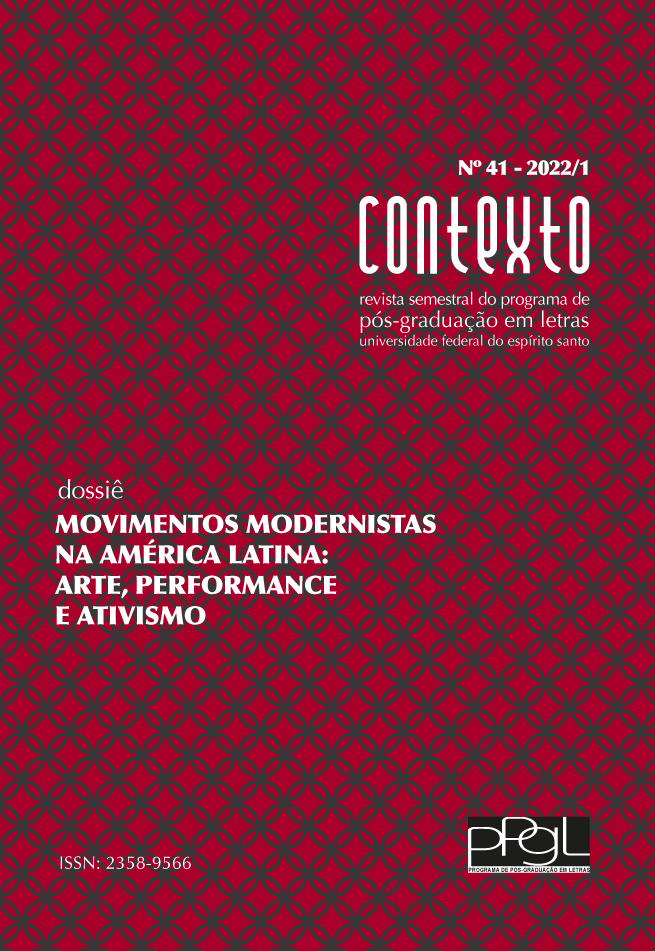On slavery tracks: medical racism and the Neo-Slave Novel in Colson Whitehead’s "The Underground Railroad"
Nos trilhos da escravidão: racismo médico e o Romance Neo-Escravo em The Underground Railroad: os caminhos para a liberdade de Colson Whitehead
DOI:
https://doi.org/10.47456/contexto.v1i41.35976Keywords:
Neo-slave Novel; Progressivism; Eugenics; Racism; Slavery.Abstract
Colson Whitehead has been noted for writing books that migrate from one literary genre to another exhibiting then a penchant for genre eclecticism. In light of that, I propose that his most successful novel The Underground Railroad should be classified as a neo-slave novel due to its autonomy in recreating antebellum slavery. Besides, in so doing, Whitehead revisits specific forgotten historical events represented by his country’s long use of racist medical procedures such as progressive eugenics. These events have been largely forgotten by most Americans and, thus, by recuperating such shameful past Whitehead indicates that progressive eugenics not only reproduced the same racist ideology under slavery but the writer also suggests the possibility that similar medical practices might still be in use today albeit with different names. In pursuing this analysis, I turn to authors such as Bernard Bell (1987), Toni Morrison (1995), Ashraf H. A. Rushdy (1999), Valerie Smith (2007) as well as interviews with Whitehead.
Downloads
Downloads
Published
Issue
Section
License
Copyright (c) 2022 Roberto Ferreira Junior

This work is licensed under a Creative Commons Attribution-NonCommercial 4.0 International License.

Este obra está licenciado com uma Licença Creative Commons Atribuição-NãoComercial 4.0 Internacional.





